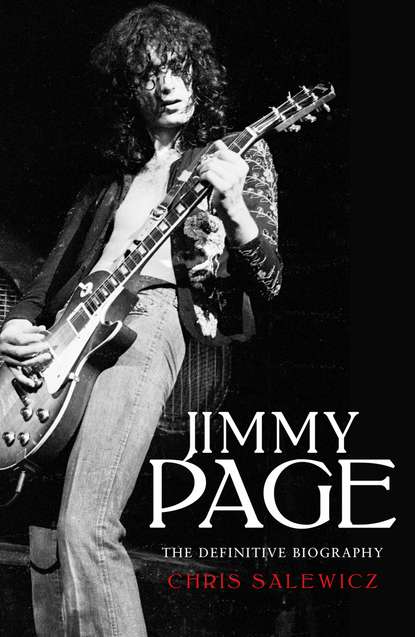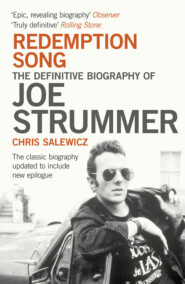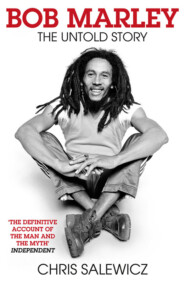По всем вопросам обращайтесь на: info@litportal.ru
(©) 2003-2024.
✖
Jimmy Page: The Definitive Biography
Настройки чтения
Размер шрифта
Высота строк
Поля
Eric Clapton was not the only one to note Page’s expertise. Soon came an approach from John Gibb of the Silhouettes, a group from Mitcham, on the furthest extremes of south London. Gibb asked Page to help record some singles for EMI, starting off with a tune called ‘The Worryin’ Kind’.
The Silhouettes would later occasionally feature Page’s new friend Jeff Beck on guitar. What has always been a fascinating psychogeographical truth is that Jimmy Page, Eric Clapton and Jeff Beck, Britain’s greatest and most creative rock guitarists of the 1960s, grew up within a radius of about 12 miles of each other.
Having witnessed Page’s guitar skills with the R&B All-Stars at the Marquee Club, Mike Leander, a young arranger and producer, pulled him into a studio for a stint as rhythm guitarist in late 1962. Page was moonlighting from art school – something that would become a pattern.
Leander had been alerted to go and check out Page by Glyn Johns, another Epsom boy, a couple of years older than Page who had watched him play years before and was now a tape operator. Of that first meeting, years before, Johns said: ‘One evening we had a talent night. I remember a boy in his early teens no one had seen before, who sat with his legs swinging over the front edge of the stage and played an acoustic guitar. He was pretty good, he may have even won, but I don’t think anyone in the hall that night had any idea that he was to become such an innovative force in modern music.’
‘I was really surprised,’ Page told Beat Instrumental magazine in 1965 about Leander asking him to play. ‘Before that I thought session work was a “closed shop”.
‘Mike was an independent producer then. And he wanted me to play on “Your Momma’s Out of Town” by the Carter-Lewis group. The record was released and I believe it helped him considerably in joining Decca full time.’
Soon Mike Leander had another, more prestigious session gig for Page. This studio date was with Shadows expatriates Jet Harris, a bass player, and drummer Tony Meehan. The resulting tune, ‘Diamonds’, was a number one smash, the first of a run of hits for the duo. Later, Harris and Meehan hired one John Baldwin to accompany their act on the road. Already there were glimmers of some kind of destiny at work; soon John Baldwin would metamorphose into John Paul Jones, so renamed for a solo single by Rolling Stones manager Andrew Loog Oldham; Baldwin’s new moniker was derived from the film John Paul Jones, a popular 1959 movie about the famed US naval commander.
Even though Harris and Meehan had departed the Shadows, it was a huge honour for the 18-year-old Page to play with the alumni of the group that, prior to the Beatles, was the biggest in the UK, largely due to the skill and charisma of Hank Marvin, their bespectacled guitarist.
‘When did I first discover Hank Marvin? When I was about 14, because in those days it was really skiffle for young kids who wanted to learn three chords and have a good time,’ Page told John Sugar on BBC Radio 4 in 2011. ‘But going past that, more into the world of the American rockabilly and rock ’n’ roll was starting to seduce us all as kids. Then you had Cliff Richard and the Drifters [as the Shadows were first known] at that time, putting forward a really, really damned good rendition of it, but it still had that sort of grit identity to it.
‘So really it was a question of seeing Hank playing with Cliff as a kid, looking at Hank on the television. He was good, but he came alive with the Shadows. I mean it was such a really, really good band and Hank was such a stylist … I mean, he was so cool. He was and still is. He had this image … He was such a fluent player … In those early years, all of us – Jeff Beck, myself, Eric Clapton – we all played things like “Apache”, “Man of Mystery”, “F.B.I.”, those sort of [Shadows] hits …
‘Hank managed to come up with this unique sound, and that sound is just so recognisable. He inspired so many guitarists in those days as kids, kids who had no idea they may even be rock stars themselves one day.’
Playing guitar with Jet Harris and Tony Meehan on live dates, along with John Baldwin, was one John McLaughlin, who had given Page some guitar lessons when McLaughlin was working in a guitar shop. ‘I would say he was the best jazz guitarist in England then, in the traditional mode of Johnny Smith and Tal Farlow,’ said Page. ‘He certainly taught me a lot about chord progressions and things like that. He was so fluent and so far ahead, way out there, and I learned a hell of a lot.’
The ‘Diamonds’ session kick-started a new career for Page, one in which he would play up to ten sessions a week, although he was still officially at Sutton Art College. For the next three and a half years, again while officially still a student, he became one of the UK’s top two guitar session players: the other was Big Jim Sullivan, and for a time the boy from Epsom, where he continued to live at his parents’ house, became known as ‘Little Jim’. Working with all manner of artists and styles, he honed his guitar playing during this period. In his early sessions he largely used a black Les Paul Custom he had played with Neil Christian. Known as ‘the fretless wonder’, and with a trio of pickups, it gave Page great tonal flexibility. When required, he also used a 1937 Cromwell archtop acoustic guitar and a Burns amplifier, or from time to time a Fender Telecaster.
In June 1963 Page was interviewed on Channel Television, ITV’s smallest franchise, broadcasting only to the 60,000 inhabitants of the Channel Islands. With his hair immaculately swept back, Page certainly looked the rocking part, yet his accent and precise, formal speech constructions suggested someone from a rather more middle-class background than his actually was. Noted for the duty-free alcohol and tobacco on offer in this UK tax haven, Jersey and Guernsey enjoyed a certain hip cachet as a holiday location: was that why Page was there?
The interview was filmed on an outdoor quayside. The first question was the set-up:
What is a session guitarist?
‘A guitarist who’s brought in to make records, not necessarily doing one-night stands, hoping they’ll get into the hit parade – only getting an ordinary fee.’
He doesn’t work for any particular singer all the time?
‘Not necessarily.’
I gather there are only a few young session guitarists like yourself: why is that?
‘Well, it seems to be quite a closed shop. The Musicians’ Union have their own chaps in and they don’t really like to get the young people in because the old boys need the work.’
So how did you become a session guitarist?
‘I don’t know. Perhaps it was because I had the feel for it.’
How long have you been playing the guitar?
‘Four years.’
Have you always been a session guitarist?
‘No, no. For the last 18 months.’
Do you play for a regular group yourself?
‘Yes: Neil Christian and the Crusaders.’ [By now Page was no longer playing with them.]
And what sort of things do you do with this group?
‘Well, we do one-night stands all over England.’
What are the big names that you have backed on disc?
‘Jet Harris and Tony Meehan, Eden Kane, Duffy Power.’
What is it like working with some of the really big names of show business?
‘Disappointing.’
Why is that?
‘Well, they don’t come up to how you expect them to be. Rather disappointing on the whole, I would say.’
That’s probably bad news for some record fans. What is your professional ambition? Do you want to be a guitarist all the time? Do you want to make your own records?
‘No, not necessarily. I’m very interested in art. I think I’d like to become an accomplished artist.’
Rather than a guitarist?
‘Yes, possibly.’
Is this a means to an end for you? Are you hoping to earn enough money through your guitar playing?
‘Yes. Yes. I’m hoping to finance my art by the guitar.’
The quality of the acts Page worked with built steadily. Carter-Lewis and the Southerners’ ‘Your Momma’s Out of Town’ was an early example. ‘He was a fast player, he knew his rock ’n’ roll and he added to that,’ said John Carter. ‘He was also quiet and a bit of an intellectual.’
John Carter and Ken Lewis were essentially songwriters, with a sub-career as backing singers: the first hit they wrote was ‘Will I What?’, the number eighteen follow-up to Mike Sarne’s 1962 novelty number one hit ‘Come Outside’. They had been persuaded to form Carter-Lewis and the Southerners to promote their material. As a session musician Page played guitar on ‘That’s What I Want’, a Carter-Lewis song that became a Top 40 hit in 1964 for the Marauders, a group from Stoke-on-Trent. Then Page briefly became an actual member of the group. Viv Prince, later drummer with the Pretty Things, played with the group while Page was with them, along with Big Jim Sullivan and drummer Bobby Graham. By 1964 Carter-Lewis and the Southerners would become the Ivy League and then magically transform into the Flower Pot Men, who in 1967 hit the UK number four slot with ‘Let’s Go to San Francisco’.
Page also played on records as diverse as ‘Walk Tall’ by Val Doonican, a kind of Irish Perry Como, and – on 6 November 1964 – with another Irish singer, Them vocalist Van Morrison, on the Belfast group’s ‘Baby, Please Don’t Go’, its B-side ‘Gloria’, and follow-up single ‘Here Comes the Night’.
The twin pillars of Them were Van Morrison and guitarist Billy Harrison. ‘We were brought over,’ said Harrison, ‘in the middle of 1964 and stuck in Decca’s West Hampstead studio to see what we had. We did “Baby, Please Don’t Go”, “Gloria” and “Don’t Stop Crying Now”, which was released as the first single and died a death.’
The sessions were produced by Bert Berns, a streetwise New Yorker who had become a songwriter and record producer of some significance; a crucial figure at Atlantic Records – he revived the career of the Drifters and brought Solomon Burke to the label – he would later run Atlantic’s BANG label, kickstarting the solo careers of Van Morrison and Neil Diamond. At first, influenced by Jerry Leiber and Mike Stoller, the white songwriting team from Los Angeles who via their cartoon-like wit transformed the subject matter of rhythm and blues, Bert Berns had been a composer of considerable success, subtly lacing his tunes with hypnotic Latin influences, especially mambo. Installed in New York’s famous Brill Building, the endlessly and effortlessly enthusiastic Berns co-wrote the Isley Brothers’ ‘Twist and Shout’, Solomon Burke’s ‘Everybody Needs Somebody to Love’, The Exciters’ ‘Tell Him’, Them’s ‘Here Comes the Night’ and the McCoys’ ‘Hang On Sloopy’, among many others. (As befitted the sometimes sleazy, occasionally Mob-affiliated world of New York popular music, Bert Berns, who everyone found a fabulous human being, attractive and glamorous to those with a fondness for boho chic, was allegedly ‘connected’, and possibly even a ‘made man’. From his rarefied perspective he would have given Page interesting instruction about the US music business. At their first sessions Led Zeppelin recorded a song about him, ‘Baby Come On Home’, subtitled ‘Tribute to Bert Berns’, an exceptionally beautiful soul tune of precisely the type Berns would have produced for Atlantic, which was not released until 1993. In Page’s guitar playing on this 1968 recording you can hear his love for Bert Berns.)
It was Bert Berns’s writing of the song ‘Twist and Shout’ that had first brought him to London. Covered by the Beatles, with John Lennon’s extraordinary, searing performance taking the song to a show-stopping further level, ‘Twist and Shout’ closed Please Please Me, the Liverpool group’s first album, the number one LP in the UK for 30 weeks in 1963. Although the Beatles meant nothing in America at that time, Berns’s first royalty cheque for his song on the album was for $90,000. In October 1963 he came over to London to see what was going on, producing a handful of no-hoper acts.
Already working in the British capital was Shel Talmy. A Los Angeleno who had worked with Capitol Records, he had been hired as staff producer by Dick Rowe, the Decca head of A&R – the man who famously turned down the Beatles but redeemed himself somewhat by signing the Rolling Stones. Rowe now decided that Bert Berns might fit as producer with the Belfast act he had signed named Them.







